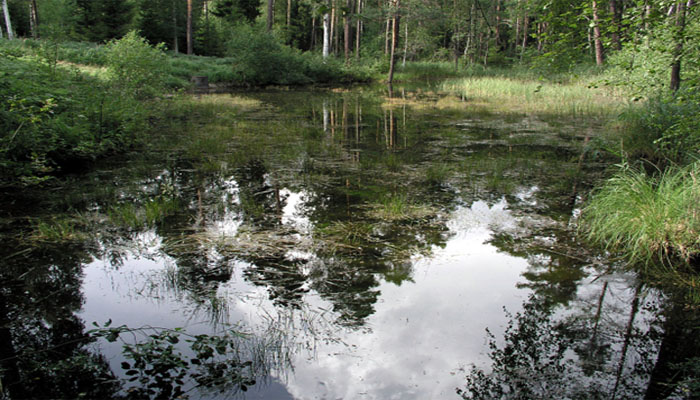
Afrasianet - As the world's population grows, climate change worsens and temperatures rise, freshwater levels are also falling, exacerbating water scarcity and threatening future wars. Can we remedy the situation, find solutions and banish the specter of water wars?
Earlier this year, US Vice President Kamala Harris said: "For years, we fought for oil, but in a short time, we will fight for water."
Water covers more than 70 percent of the land, but this does not mean that drinking water is abundant. Only 2.5 percent of the Earth's water is drinkable, which is worrying. When we talk about our limited water resources, freshwater makes up only 3 percent of the Earth's water. Glacier zones and frozen rivers make up most of the freshwater sources, making less than one percent available that can be used for drinking and agriculture.
As the earth's population has increased, the world needs more water sources to cultivate and feed millions around the world. What has made the crisis more difficult is the increasing pollution of the quantities of water available to humans, whether through fertilizers, industrial pollution or even overuse of water, causing the water of underground reservoirs in overcrowded cities to decrease.
All of these things could eventually push humans into wars for safe drinking water, which seems to be decreasing. Even if the adverse weather conditions caused by climate change are dealt with, the situation is still frightening.
While some areas are experiencing flooding, others are approaching the abyss of drought. For example, 85 percent of the U.S. state of California is suffering from a serious and exceptional drought and cities and agricultural areas are suffering from water shortages. With many areas experiencing uneven and unpredictable rainfall, famine or spiraling out of control is a threat.
While floods have killed more than two hundred people in Germany, tensions and malnutrition due to water scarcity in arid regions are expected in the coming decades, leading to mass displacement and exacerbating the seriousness of the climate conflict, especially in Africa. In this regard, Kamala Harris is right to warn of future water wars.
Many say the solution lies in the beaches – desalination of oceans and rivers available on Earth's surface – to solve water shortages and avoid the specter of water wars. But desalination also brings major problems. At the forefront, extracting salt from water requires energy, which means that the process increases carbon dioxide emissions that have helped fuel water scarcity in the first place. Like rainwater, desalination plants are expensive: Unevenly distributed. Half of the world's nearly 20,000 desalination plants are located in oil-rich Gulf countries, with the majority serving high-income countries.
For example, in Africa, where one in three people is highly water insecure, access to desalination plants is very scarce, especially in highly under-resourced African countries with varying rainfall or severe droughts.
The issue of ocean and sea desalination raises another brine problem: once freshwater is separated and obtained, the brine is returned to the ocean, leading to high salinity, depleting oxygen levels in the water and suffocating organisms.
Need is the mother of invention!
Cape Town, South Africa, may offer some solutions, as it faces an uncertain future over water shortages, having in 2018 been on the brink of running out of water resources, cutting down hundreds of thousands of trees to get help with its water supply.
In North America, the aquifer that feeds Mexico City has fallen to a low level during droughts, while tens of millions of Americans in the western United States have recently been told they have to reduce and rationalize water consumption over the next year due to low levels in the giant Lake Mead, the country's largest artificial reservoir.
In Texas, in El Paso County, the water utility company has installed a water purification facility that by 2028 will be able to treat, purify and return wastewater for use. As for recycling wastewater for drinking, it has been happening for decades in countries with a shortage of vital water resources such as Namibia, which is one of the cheapest and most efficient methods compared to desalination of sea or ocean water.
According to a leaked report by UN goats expected to be released soon, an additional 350 million urban dwellers will suffer water scarcity from severe drought with temperatures as high as 1.5°C. This could happen over the next decade, according to the Intergovernmental Panel on Climate Change.
The authority warned of the consequences of not reducing greenhouse gas emissions now, as this will lead to higher temperatures and the resulting increased pressure on the world's water resources.
After all this talk, what will America, which is used to stealing people, do? Certainly, it does not think not to use its usual methods to control water sources, especially in the Middle East, as information says that there are talks described as security with the governments of the region to control the issue of water and that this issue is on its way to confirm the American control over drinking water just like its desire to control the seas as well as the natural resources of peoples.

